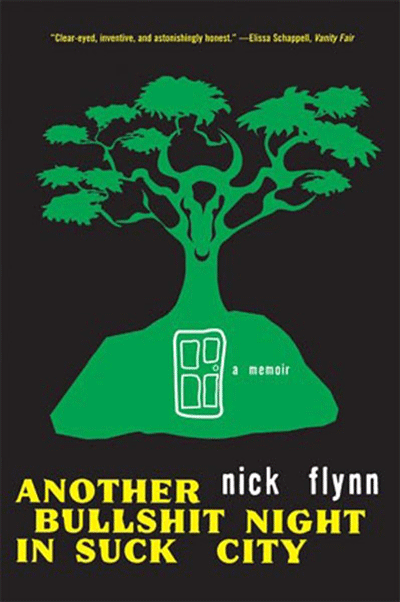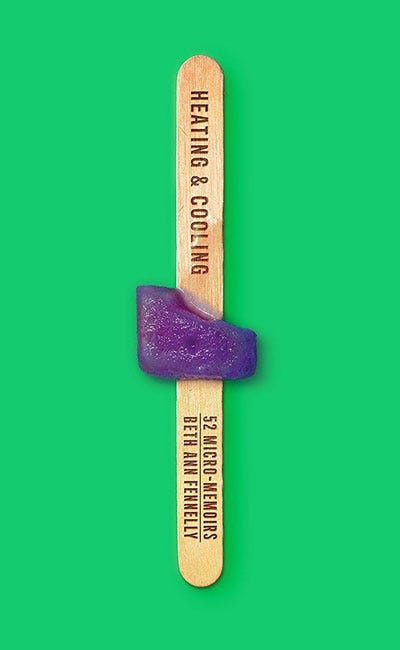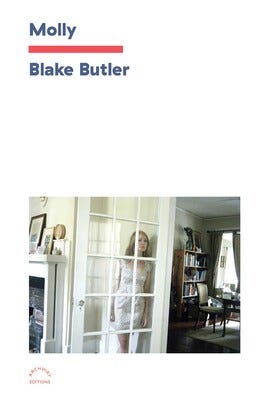Another Bullshit Night in Suck City by Nick Flynn and 52 Micro-Memoirs from Beth Ann Fennelly
Plus, Blake Butler's memoir finally arrived at my local bookstore.
Another Bullshit Night in Suck City (2005)
by Nick Flynn
I don’t how I missed fellow Gen-Xer Nick Flynn’s memoir about his relationship with his estranged father published in 2005. From the outset, I couldn’t help but notice similarities between father and son. Not only the drinking and homelessness (or near-homelessness I should say; Flynn lives on a boat for a while), but also their shared passion for writing. Flynn tells us early on that his father wrote a novel and, in his father’s delusional fashion, is convinced he can sell it to a big publishing house.
In nearly every letter my father has sent me for the last twenty-five years he tells me his writing is going very, very well. His novel, such as it is, if it is at all, written in blackout and prison, is his ark, the thing that will save him, that will save the world. His single-mindedness impresses most, his fathomless belief in his own greatness, in his powers to transform a failed world, to make it whole again by a word, by a story. That if you stick with your vision long enough you will be redeemed.
Flynn paints a clear picture of his father without passing judgement. He evokes compassion for this otherwise tragic character by giving us something we can relate to, because what writer is not propelled by thoughts of his eventual greatness? Yet Flynn also ensures we never veer too far in that direction. We can’t help but remain on the writer’s side, even when he tells us this:
Sometimes I'd see my father, walking past my building on his way to another nowhere. I could have given him a key, offered a piece of my floor. A futon. A bed. But I never did. If I let him inside I would become him, the line between us would blur, my own slow-motion car wreck would speed up.
We learn about Flynn’s many tragedies, which I won’t give away here, but we also know he triumphs—in the one way his father understood—because we hold this very book in our hands.
Heating and Cooling (2017)
by Beth Ann Fennelly
Beth Anne Fennelly’s book is a tight compilation of 52 micro-memoirs, each essay ranging from a single, perfect sentence to a few hundred words. Although short — just 107 pages — the book’s content has been mined so skillfully that only comedic gold remains. In a piece titled “Another Reason I Love My Mother,” Fennelly writes:
At the baby shower, she rejects the pink M&Ms, because pink M&Ms are unnatural.
As a testament to her talent for this unique genre, many of these essays were previously published in top-tier literary magazines like Brevity, Creative Nonfiction, and The Cincinnati Review (to name a few). For you essayists out there, I found her list of publications on page 111 to be a great list to consider for your own writing.
Molly (2023)
by Blake Butler
Molly, Blake Butler’s memoir about his wife and her death from suicide, finally arrived at my local bookstore. One night last week, my daughter came to sit next to me on the couch while I was reading it. She said, “Oh mama, is your book sad?” after noticing my cheeks were wet with tears.
Molly was also a writer, and we have a first-person account of her life from her 2016 memoir as well as her diaries. Butler includes one particularly heart-wrenching entry Molly wrote the week before she took her own life:
I spent the whole day just lying in bed yesterday, crying a lot. Stared out the window at the bees on the tiny flowers in the lawn. I guess I needed to despair for a while. Took a bath, said goodbye to my body.
Molly made a list called “Master List of Things I Like and Might Write About,” which included Nature Shows, The ocean, interesting rocks, Hard Work, Old buildings, Peonies, and blankets, among many others (selective capitalization her own). Butler tells us that “in due time” Molly would remove most everything from this list. He includes it with her redactions, and we can see that Molly has crossed almost everything out, signaling her own retreat from the world.
Basically all birds
Blue
Cats
I found myself flipping back to her suicide note again and again like reopening a wound, desperate to understand who she was in her own words, attempting to glean something I’d missed. But there were no answers to find, and the letter became like maze with no exit. No matter which path I took, I would never know who she truly was or why she took her own life. I would never find a path that led to the place where Molly was still alive.
I feel strange saying I loved this book, even though I did. However, Butler captures his own despair and the tragedy of Molly’s distress so acutely that I hesitate to recommend it to anyone who has recently lost a loved one or is especially disturbed by the topic of suicide.






